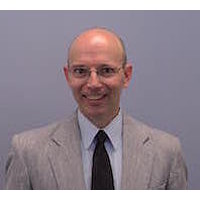‘Create’ more time
How difficult can it be to get everything done? After all, time is an integral part of our job functions. Time stamps improve repeatability and quality. Lag time influences how logic is shaped. We're asked to help reduce cycle times, apply real-time controls, and get closer to just-in-time delivery, where they make sense.
How difficult can it be to get everything done? After all, time is an integral part of our job functions.
Time stamps improve repeatability and quality. Lag time influences how logic is shaped. We’re asked to help reduce cycle times, apply real-time controls, and get closer to just-in-time delivery, where they make sense. These happen by taking better measurements, making better decisions, actuating more appropriately, and communicating more efficiently.
So we should be time-management experts by now, right? Yet with widespread downsizings, smaller departments, and greater need to team with others, it’s hard not to feel there are too few hours in every day.
As an alternate to less sleep….
Take a few minutes daily to re-examine your schedule. Once a week, plan time to match tasks to monthly, quarterly, and longer-term goals.
Set realistic expectations. Separate the must-do from the should-do from the want-to-do things. Accept that everything you’d like to do cannot happen.
Schedule weekly time to prepare for and work on upcoming projects to lessen sequential deadline pressure.
Communicate realistically about what you can achieve, at what quality, and suggest adding resources or dropping tasks, if it’s not going to happen according to expectations.
As with any technology, ensure your tools serve you, rather than the other way around. Gain adequate knowledge of appropriate skills, hardware, and software applications. Set times to check e-mail or make routine calls. Integrate pagers, mobile phones, PDAs, and instant messaging only as practical. (Don’t forget the usefulness of face time and a quick paper note.)
Establish times for critical tasks. Organize work area daily, empty in-boxes weekly, sort and toss files monthly. Include few things regularly that rate high on your satisfaction list. (“Work” is less work when you set your attitude on “enjoy.”)
Plan time for faith, family, friends, vacation, and personal growth. Take quiet time for thought, renewal, mediation, and/or prayer.
Find and apply techniques appropriate to your team, style, way of thinking, and organizations. Give any new routine a chance to work before trying something else.
Do I do all these consistently? No way. But waiting until you “have time” before doing any, guarantees a time crunch. Finally, if you have time-saving suggestions, please put “TIME TIP” in the subject line and e-mail me. Oops, time to go!
Mark T. Hoske, Editor-in-Chief MHoske@cfemedia.com
‘Timely’ Online Extra: more reading
The following information appears exclusively online.
For more help with time management, click into the following Control Engineering and related Reed Business Information resources. Not all are in our area, but each has pointers useful for better time management.
“Career Update: Redesigned work improves business, life balance”
“Career Update: Frequent, face-to-face conversation key to proactive project management”
“Career Update: Help others adapt to change”
“How to have successful meetings: 10 tips….”
“13 skills for a successful salesperson”
“New Line Order: A chef talks about the trials of taking over a kitchen created by someone else.”
“Interpersonal Skills”
Searching on Career Update at www.controleng.com returns 42 articles in a variety of career-boosting topics.
Do you have experience and expertise with the topics mentioned in this content? You should consider contributing to our CFE Media editorial team and getting the recognition you and your company deserve. Click here to start this process.


